基础日语综合教程1. 大学日语教材 (高等教育出版社)第二课STEP2 文法和句型
- 格式:ppt
- 大小:13.64 MB
- 文档页数:14
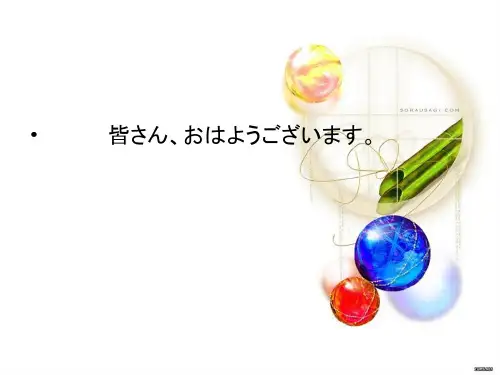
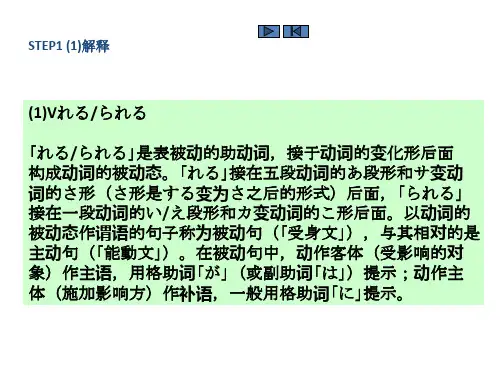
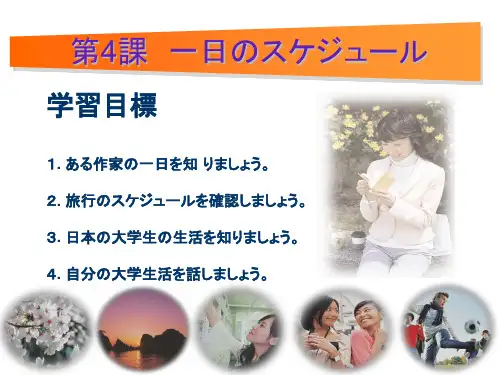
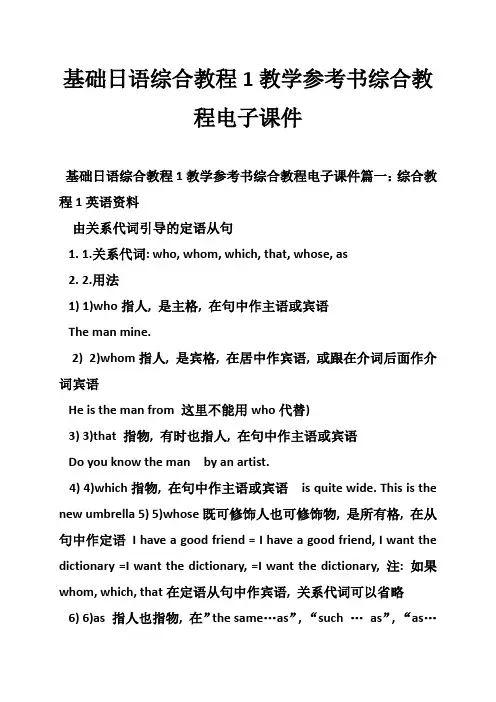
基础日语综合教程1教学参考书综合教程电子课件基础日语综合教程1教学参考书综合教程电子课件篇一:综合教程1英语资料由关系代词引导的定语从句1. 1.关系代词: who, whom, which, that, whose, as2. 2.用法1) 1)who指人, 是主格, 在句中作主语或宾语The man mine.2) 2)whom指人, 是宾格, 在居中作宾语, 或跟在介词后面作介词宾语He is the man from 这里不能用who代替)3) 3)that 指物, 有时也指人, 在句中作主语或宾语Do you know the man by an artist.4) 4)which指物, 在句中作主语或宾语is quite wide. This is the new umbrella 5) 5)whose既可修饰人也可修饰物, 是所有格, 在从句中作定语I have a good friend = I have a good friend, I want the dictionary =I want the dictionary, =I want the dictionary, 注: 如果whom, which, that在定语从句中作宾语, 关系代词可以省略6) 6)as 指人也指物, 在”the same…as”, “such …as”, “as…as”的结构中使用, 在从句中作主语, 宾语或表语. He is not the same person He used such expressions Tom is as clever a boy as作关系代词还可以引导非限制性定语从句, 可以放在主句前.(as的现行词不是一个名词, 而是he is a famous inventor整个句在下列情况下, 通常用that指物, 而不用which1) 1)先行词是something, anything, everything, nothing, little, all 等不定代词时, 只能用thatIs there anything (that) I can do for you?There is little (that) I can do for you.All (that) you have to do is to press the button.2) 2)当先行词被形容词的最高级修饰时This is the tallest building (that) I have ever seen.3) 3)当先行词被序数词修饰时The first English novel (that) I have read is Tale of Two Cities.4) 4)当先行词由only, no, very修饰时This is the very dictionary (that) I want to buy.There is no difficulty (that) we can’t overcome.5) 5)当先行词指人又指物时They talked for about half an hour of things and persons (that) they remembered in the school.6) 6)在特殊疑问句中, 如果疑问词是which, 为了避免重复, 常用that作关系代词Which is the picture (that) you like best?who, 为了避免重复, 常用that作关系代词Who of us that knows something about music does not know this? Who that has seen it does not admire it?由关系副词引导的定语从句.1. 1. 关系副词: when, where, why2. 2. 用法: 关系副词在定语从句中均不作主语或宾语, 而是作状语1) 1)when指时间, 在从句中作时间状语I still remember the day when we first met.= I still remember the day on which we first met.2) 2)where指地点, 在定语从句中作地点状语Shanghai is the city where I was born.= Shanghai is he city in which I was born.3) 3)why指原因, 在定语从句中作原因状语Do you know the reason why he was absent from school?= Do you know the reason for which he was absent from school?I. II.容易用错的关系副词和关系代词先行词是时间, 地点, 原因的名词, 定语从句不一定就由关系副词引导We will never forget the day that we spent together.(作宾语) We will never forget the day when we spent the holiday together.(作状语)Is this the museum that we visited last month? (作宾语)Is this the museum where we saw a film last month? (作状语) This is the reason that he gave us for his behavior. (作宾补) This is the reason why he didn’t come to school. (作状语)III. 特殊句型Each time/ every time / the moment / the first time etc. + 从句, 当这一结构表示某个时间时, 可以把这些试件词看成一个整体, 相当于由when引导的状语从句, 因此其后不用关系副词Each time I call on him, he is out. (R) ≈When I call on him, he is out.Each time when I call on him, he is out. (W)The Relative Clause III(非限制性定于从句)1. 1. 限制性定语从句不能省略, 如果省略了句子就不完整,而限制性定语从句可以省略,因为它仅仅是对先行词的附加说明Take the street that goes to the right.The library,(which is newly built,)will soon be open to the public.2. 限制性定语从句中,主句与从句之间没有逗号,非限制性定语从句中主句与从句之间必须用逗号隔开.3. 限制性定语从句中作宾语的关系代词可以省略, 而在非限制性定语从句中则不能省.4 非限制性定语从句不能用关系代词that.5.限制性定语从句的先行词只能是一个名词或代词,而非限制性定语从句的先行词可以是一个词, 也可以是一句话He didn’t pass the examination, which disappointed his parents.6. 非限制性定语从句所修饰的某人的亲属或某个东西,某个地方表示”唯一的,独一无二的”, 限制性定语从句表示这个亲属和地方不止一个.My brother who lives in New York has six children. 我住在纽约的那个兄弟有六个孩子. (不止一个兄弟)My brother, who lives in New York, has six children.我有一个兄弟, 他住在纽约, 有六个孩子. (只有一个兄弟) Shanghai, which lies in the east of China, is a highly industrialized city.(因为上海只有一个, 必须在关系代词前用上逗号.)特殊的定语从句I. I. 嵌入式定语从句She is a top student, who they say has won five prizes in the contest.她是个优等生, 大家说她已经在比赛中获了五次奖“who has won five prizes in the contest”既是student的定语从句, 又是they say的宾语, 而they say 类似插入语, 如果去掉并不影响句子的完整, 类似的还有:I have an idea which I’m sure will interest you.We will have a new teacher, who I know has just returnedfrom Britain.He read a poem which we thought was written by a poet in the Qin Dinesty.II. II.that的特殊用法Can you tell me the way (that)/ in which you solved the difficult problem?This is the last time (that) I’ll give you a lesson.III. III. 在非限制性定语从句中,of which / of whom 常用于基数词some,most,all,none,neither,either 等词后,而不用whose。
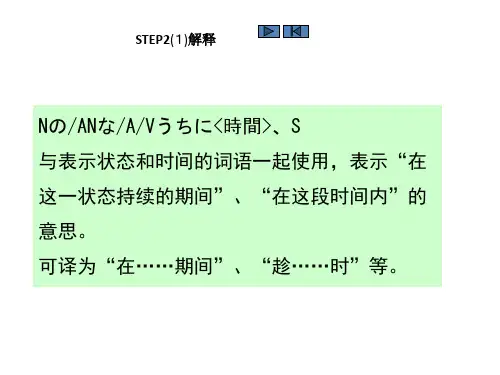
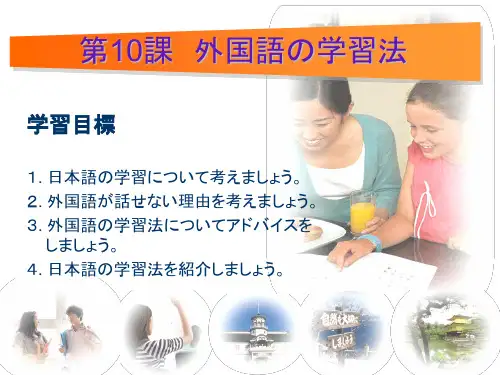
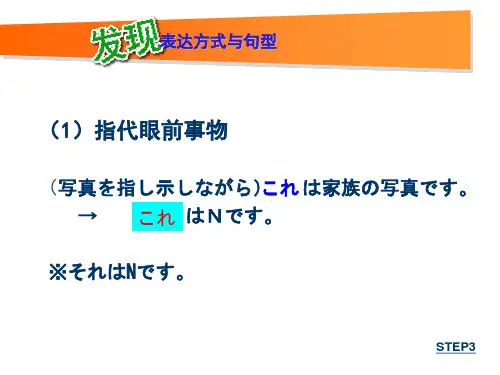

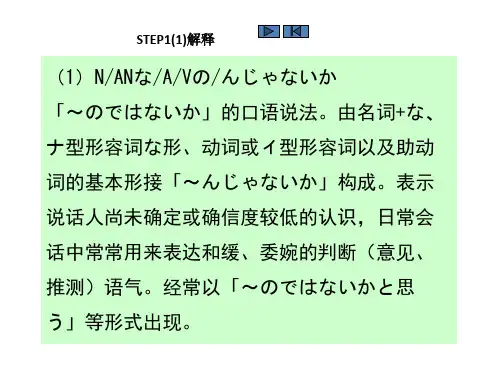
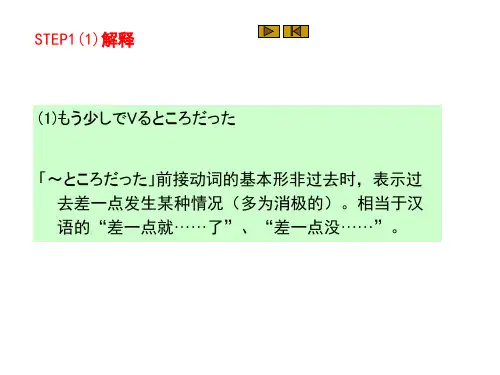
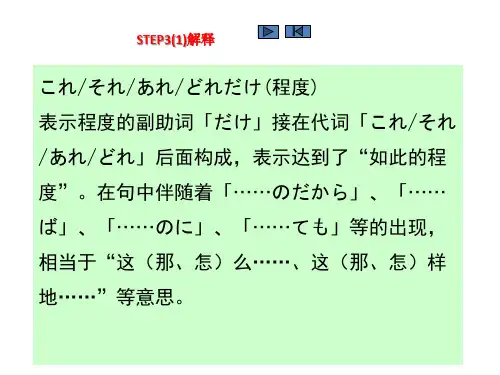
如果说喜欢大山是继承了父亲的血统,那么爱好大海一定是从母亲那里传承下来的。
那是战争结束后不久,恰好经过不忍池附近时,妈妈会在池塘边深深蹲下,两眼死死地盯着水面。
假如我喊她,她的脸上似乎显得很难为情,站了起来,笑着说:“想看一会儿海呀!”当时,因为住在东大附近,去买东西时就顺便在不忍池休息一下,不可思议的是,我一直没有忘记那时妈妈说的话。
小学六年级的暑假,我曾去母亲的故乡,鹿儿岛上一个边远的渔村住了一个月。
外公个子高高的,非常强壮,一直在那里行医。
距家大约五十米处便是大海,从那景色秀丽的海滨,看得见樱岛和开闻火山。
母亲说想看大海,我想也许就是那故乡的海滨吧。
如是在今天,去鹿儿岛用不了两个小时,而在那时,那里是一个遥远的地方,需要坐夜间火车和联运船才能到。
在思乡之情的驱使下,似乎妈妈那种举动是理所当然的。
虽说喜欢大海,但尽情与大海亲密相处也只有在那个暑假,后来仅达到了从学校去洗海水浴的程度。
也许是因为与海隔绝的状态,反而激发起我对大海的憧憬吧。
大学毕业的那年,不知为什么,想要寻找与大海有关系的职业,便去打听能不能在日本邮船公司工作。
出来接待我的人事课长非常遗憾地说:“本公司与其他公司一样,对文学出身的大学生,一概不受。
”我将船公司误认为全体职员都在船上工作了。
尽管如此,希望乘船,我对大海的痴情却有增无减。
幸运的是,我即将去法国,根据指示,留学生将乘船前往。
去马赛有三十三天的航程——想到这个,我高兴得几乎要晕过去,可是其他留学生们不知为什么对这样耗费时间的旅行却一脸的不高兴。
我为了一个人尽情玩味航海的喜悦,选择了四等舱的铺位,那是季节工人用的船舱,留学生从不靠近,不但如此,因为在船底,靠近大海,舷窗外蓝色的波涛近在咫尺,汹涌起伏。
海上起风浪时,船员将蒙上铁皮的舷窗关死。
所谓床位,是用铁管制成的两层架子上绑上帆布,室内什么装饰也没有,简直像牢狱一样。
但是,文明的舒适环境,常常隔断了我们与大自然的直接接触。